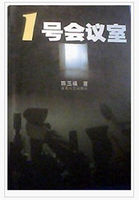Competition, according to an American economist, determines how many days of simple labor are contained in one day's compound labor. Does not this reduction of days of compound labor to days of simple labor suppose that simple labor is itself taken as a measure of value? If the mere quantity of labor functions as a measure of value regardless of quality, it presupposes that simple labor has become the pivot of industry. It presupposes that labor has been equalized by the subordination of man to the machine or by the extreme division of labor; that men are effaced by their labor;that the pendulum of the clock has become as accurate a measure of the relative activity of two workers as it is of the speed of two locomotives.
Therefore, we should not say that one man's hour is worth another man's hour, but rather that one man during an hour is worth just as much as another man during an hour. Time is everything, man is nothing; he is, at the most, time's carcase. Quality no longer matters. Quantity alone decides everything;hour for hour, day for day; but this equalizing of labor is not by any means the work of M. Proudhon's eternal justice; it is purely and simply a fact of modern industry.
In the automatic workshop, one worker's labor is scarely distinguishable in any way from another worker's labor: workers can only be distinguished one from another by the length of time they take for their work. Nevertheless, this quantitative difference becomes, from a certain point of view, qualitative, in that the time they take for their work depends partly on purely material causes, such as physical constitution, age and sex; partly on purely negative moral causes, such as patience, imperturbability, diligence. In short, if there is a difference of quality in the labor of different workers, it is at most a quality of the last kind, which is far from being a distinctive speciality. This is what the state of affairs in modern industry amounts to in the last analysis. It is upon this equality, already realized in automatic labor, that M. Proudhon wields his smoothing-plane of "equalization", which he means to establish universally in "time to come"!
All the "equalitarian" consequences which M. Proudhon deduces from Ricardo's doctrine are based on a fundamental error. He confounds the value of commodities measured by the quantity of labor embodied in them with the value of commodities measured by "the value of labor". If these two ways of measuring the value of commodities were equivalent, it could be said indifferently that the relative value of any commodity is measured by the quantity of labor embodied in it; or that it is measured by the quantity of labor it can buy; or again that it is measured by the quantity of labor which can acquire it. But this is far from being so.
The value of labor can no more serve as a measure of value than the value of any other commodity. A few examples will suffice to explain still better what we have just stated.
If a quarter of wheat cost two days' labor instead of one, it would have twice its original value; but it would not set in operation double the quantity of labor, because it would contain no more nutritive matter than before. Thus the value of the corn, measured by the quantity of labor used to produce it, would have doubled; but measured either by the quantity of labor it can buy or the quantity of labor with which it can be bought, it would be far from having doubled. On the other hand, if the same labor produced twice as many clothes as before, their relative value would fall by half; but, nevertheless, this double quantity of clothing would not thereby be reduced to disposing over only half the quantity of labor, nor could the same labor command the double quantity of clothing;for half the clothes would still go on rendering the worker the same service as before.
Thus it is going against economic facts to determine the relative value of commodities by the value of labor. It is moving in a vicious circle, it is to determine relative value by a relative value which itself needs to be determined.
It is beyond doubt that M. Proudhon confuses the two measures, measure by the labor time needed for the production of a commodity and measure by the value of the labor. "Any man's labor," he says, "can buy the value it represents." Thus, according to him, a certain quantity of labor embodied in a product is equivalent to the worker's payment, that is, to the value of labor. It is the same reasoning that makes him confuse cost of production with wages.
"What are wages? They are the cost price of corn, etc., the integral price of all things."Let us go still further.
"Wages are the proportionality of the elements which compose wealth."What are wages? They are the value of labor.
Adam Smith takes as the measure of value, now the time of labor needed for the production of a commodity, now the value of labor. Ricardo exposes this error by showing clearly the disparity of these two ways of measuring.
M. Proudhon goes one better than Adam Smith in error by identifying the two things which the latter had merely put in juxtaposition.
It is in order to find the proper proposition in which workers should share in the products, or, in other words, to determine the relative value of labor, that M. Proudhon seeks a measure for the relative value of commodities. To find out the measure relative value of commodities he can think of nothing better than to give as the equivalent of a certain quantity of labor the sum total of the products it has created, which is as good as supposing that the whole of society consists merely of workers who receive their own produce as wages. In the second place, he takes for granted the equivalence of the working days of different workers. In short, he seeks the measure of the relative value of commodities. What admirable dialectics!















